Edge Critical Infrastructure Solutions Buyer’s Guide
Why You Need an Edge Strategy
As IoT deployments face challenges related to latency, network bandwidth, reliability, and security, Vertiv has expanded edge technologies designed to meet the unique challenges of the network edge. The Edge has more features, platforms, more functions, and is required to do more intelligent jobs than other layers of the complex IT landscape. The flexibility the Edge provides enables the ability to scale with data center growth.

What is the Edge?
The Edge is an evolution, not a revolution. From a network closet to a data center, each customer’s deloyment comes with its own set of requirements. Edge computing is part of a distributed computing topology in which information processing is located close to the edge – where things and people produce or consume that information.
The Potential of the Edge
Edge computing can impact businesses in a big way. By moving computing and storage away from the core, there is a greater speed and flexibility, giving more value to you and your data. Edge computing will be the driving force that will support these initiatives, enabling enterprises to deploy faster technology-based services to customers.
Why an Edge Strategy is Important
Many remain unaware of the benefits an Edge strategy could bring to their organization. The key advantages of an Edge strategy are:
Many organizations operate multiple sites across different countries or cities. By enabling computing resources at the Edge, it is possible to keep these remote sites functioning irrespective of failings at the core.
The 4 Edge Archetypes
Defining The Four Edge Archetypes and their technology requirements, a global, research-based analysis of network Edge use cases, results in the identification of four main archetypes for Edge applications and the technology required to support them.

Data Intensive

Human-Latency Sensitive

Machine-to-Machine Latency Sensitive

Life Critical
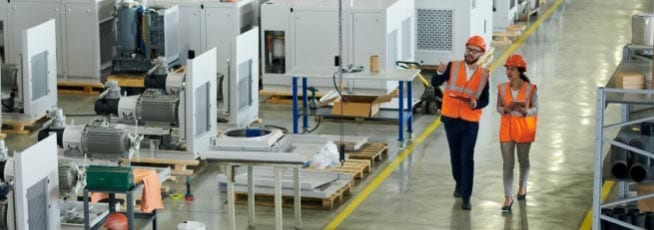
- Restricted Connectivity
- Smart Cities
- Smart Factories
- Smart Home/Building
- Hd Content Distribution
- High-Performance Computing
- Virtual Reality
- Oil and Gas Digitization
- High Network Infrastructure Costs

- Website Optimization
- Augmented Reality
- Smart Retail
- Natural Language Processing

Machine-to-Machine Latency Sensitive
- Smart Security
- Smart Grid
- Low-Latency Content Distribution
- Arbitrage Market
- Real-Time Analytics
- Defense Force Stimulation

Life Critical
- Digital Health
- Connected/Autonomous Cars
- Drones
- Smart Transport
- Autonomous Robots
Where Can the Edge Take You?
Your network edge is always evolving to wherever your customers are and whatever they need.
I Want to Update/Upgrade
Need more capacity at edge sites to handle new demands
Key Considerations:
- Sizing the uninterruptible power supply (UPS) to meet all the requirements
- Evaluating heat loads to determine need for dedicated cooling
- Enabling connectivity for remote monitoring
Need to quickly implement new infrastructure to support edge technology
Key Considerations:
- Evaluating potential for standardizing infrastructure to simplify processes
- Feasibility of using factory integration to receive IT-ready infrastructure
- Determining the availability and skill level of resources to install edge technology
Distributed sites are more critical and need higher reliability infrastructure
Key Considerations:
- Evaluating line interactive versus double conversion UPS topologies
- Enabling connectivity for remote monitoring
- Ensuring adequate resources are available for UPS service
Managing a growing edge of network that is becoming more critical
Key Considerations:
- Identifying the key variables required for monitoring
- Ensuring that power and thermal infrastructure are equipped for connectivity
- Ensuring that resources are available to monitor and respond to alerts
I Want to Grow/Expand
Need to match infrastructure to edge technology requirements
Key Considerations:
- Sizing the UPS to meet current and future requirements
- Evaluating heat loads to determine need for dedicated cooling
- Enabling connectivity for remote monitoring
Need to tailor infrastructure to availability and requirements of new sites
Key Considerations:
- Evaluating line interactive versus double conversion UPS topologies
- Enabling connectivity for remote monitoring
- Ensuring that adequate resources are available for UPS service
Must remotely monitor and manage new edge sites
Key Considerations:
- Identifying the key variables required for monitoring
- Ensuring that power and thermal infrastructure are equipped for connectivity
- Ensuring that resourcing is available to monitor and respond
Simplify infrastructure configuration and deployment
Key Considerations:
- Evaluating potential for standardizing infrastructure to simplify processes
- Determining feasibility of integration services to receive IT-ready infrastructure
- Determining the availability and skill level of resources to install edge technology
I Want to Centralize My Visibility
Need to cost-effectively service growing distribution network
Key Considerations:
- What local resources are available for installation and servicing remotely
- Ensuring a timely response to service requirements, such as low battery capacity
Need to enable remote access to IT systems
Key Considerations:
- Evaluating potential for standardizing infrastructure to simplify processes
- Determining feasibility of integration services to receive IT-ready infrastructure
- Determining the availability and skill level of resources to install edge technology
Need to select a monitoring and management platform
Key Considerations:
- Identifying the key variables required for monitoring
- Ensuring that power and thermal infrastructure are equipped for connectivity
- Ensuring that resources are available to monitor and respond to alerts
Need to select a monitoring and management platform
Key Considerations:
- Identifying the key variables required for monitoring
- Ensuring that power and thermal infrastructure are equipped for connectivity
- Ensuring that resources are available to monitor and respond to alerts
How the Edge Can Help Your Industry
Your business is looking to IT to support new edge applications and migrate computing and storage closer to customers, associates and devices. But, you can’t do it alone. No matter your challenge, Vertiv has the solution.
The Edge Industries

Education

Government

Healthcare

Retail

Manufacturing

Education
As IT becomes an integral part of the classroom, how can schools and universities
protect their existing infrastructure to support technology requirements?
Needs
A More Interactive Learning Experience
- Mobile learning allows students from different locations to attend classes remotely via virtual classrooms.
- This poses a challenge to the traditional brick-and-mortar educational approach and is driving institutions to innovate and thrive.
Challenges
Managing Distributed IT
- A typical campus normally has multiple buildings. Typically, an IT manager is responsible for managing the entire campus.
- The IT manager needs visibility, access, and control of the IT assets spread throughout the campus.
The Future of Adaptive Learning
- Courses are tailored according to the personal needs and requirements of each student.
- This is supported by BYOD (bring your own device), where gadgets, formerly considered “distractions”, are now considered “learning supplements.”
Data Protection and Security
- IT managers must ensure that sensitive student data and information are protected against cyber attacks and other threats.
- On the data center level, assets must be protected through centralized monitoring for insight, security and ease of management.

Government
With years of partnering with federal customers, our power, thermal, management,
services and monitoring solutions come with continued support.
Needs
Reliable Remote Control
- The “power of being there” no matter your location has never been more relevant than it is today. Helping customers access their data centers remotely is in our DNA.
Remote and On-Premise Security
- IT managers must ensure that sensitive data and information are protected.
- A federal agency’s IT assets must be protected, from hardware to software.
- At every level, data and assets must be protected through centralized monitoring for maximum security and ease of management.
Challenges
Reliable Remote Access
- With a new breakdown of workers still in the office and at home, IT managers now require remote access and control to view conditions and troubleshoot where needed.
Integrated and Scalable Infrastructure
- With changing budgets every year, federal agencies need to scale up quickly to meet their new demand.
- Mainly purchasing IT assets during a short buying season, means that the ease of purchasing is at the top of their minds for agency personnel.

Healthcare
As patients become more empowered to make better choices when it comes to their
health, the IT infrastructure must support these new technologies.
Needs
Digital Health
- Digital health is being used to improve patient care, workflow, and healthcare service delivery.
- Now is the time to upgrade critical infrastructure to support the next generation of digital healthcare.
Preparing for Interoperability
- Interoperability promises a seamless exchange of information across a vast network of providers involved in a patient’s care.
- An integrated system is expected to propel value-based patient care, increase operational efficiencies and lower costs.
Challenges
Growth at the Healthcare Edge
- With rising healthcare costs, new service delivery models are helping to drive down costs and to provide services within the community.
- Rethinking healthcare IT architecture and deploying small, branch data center locations supports a variety of healthcare functions to ensure fast, easy access to information.
Optimizing Healthcare Operations
- The healthcare industry is among the most complex and becoming even more so as a result of industry consolidation.
- Connected devices put key operating parameters at your fingertips, which improves communications.

Manufacturing
In manufacturing, Vertiv provides unmatched protection and reliability for critical
manufacturing equipment.
Needs
AI Takes Center Stage
- To improve manufacturing processes, manufacturers are investing in automation. Research and markets expect AI spending in manufacturing to reach $17.2B by 2025.
- A key benefit in automation is that it reduces risks, especially in industrial sites.
A Learner Supply Chain System
- Stay above the competition. Manufacturers will increasingly focus on simplifying supply chain to be able to operate more efficiently, manage stocks, and reduce costs.
- Many will digitize their supply chains through the use of RFID (radio frequency identification), business intelligence, as well as tools to improve logistics.
Challenges
Critical Manufacturing Equipment
- Protection of manufacturing equipment is critical, as downtime means lost productivity, damaged reputation and lost revenues.
- It is important to maintain reliability through regular facility testing and by utilizing solutions that protect against common causes of breakdowns.
Managing Critical IT Infrastructure
- AI and robotics are increasingly being used on the manufacturing floor to speed up manufacturing processes.
- Manufacturing equipment should be optimized and designed to accommodate integration of technology through the use of predictive tools, as well as, power availability.

Retail
Perfecting the retail customer experience requires speed and agility across your organization – from stores and distribution centers to data centers and online platforms.
Needs
Experience Economy
- The focus on experiences rather than just pushing products is what has been driving the latest retail digital transformation.
- New concepts, such as cashierless stores, would not be possible without security to continue delivering on the customer experience.
Internet of Things
- Digital transformation is evident at a warehouse or distribution center. The supply chain is already highly automated and will only get more advanced.
- Realizing the full value of smart factories will require robust edge infrastructure.
Challenges
Future Scalability
- Finding the right solutions partner is crucial to understanding what products can update into a stronger, more agile data center.
- Focusing on the customer experience requires speed and agility across the organization, especially in the application of new technologies.
Deploying Technology
- By integrating operations, a retailer can begin aggregating and analyzing the customer related data to define a customer experience.
- To become more developed, retailers need to adopt distribution center technologies.
Launch Your Edge
Vertiv offers a broad portfolio of industry-leading, performance-driven Edge solutions for your new data center. Browse these featured products, systems, and software to find the perfect IT to launch your Edge.
Remote Access & Control: Avocent Serial Consoles
The Avocent® ACS8000 advanced console server series continues its long-running
success story with a new, ground-up platform of innovation, integrating important new
connectivity features such as cellular, gigabit fiber, USB and sensors.
PRODUCT HIGHLIGHT: AVOCENT ACS8000
Type: Server & Console Management
CPU: Dual Core ARM Cortex-A9 MPCore with CoreSight
Memory: 1GB DDR3L RAM
Power: 100-240 VAC
Connectivity: NEW 4G LTE
Ports: NEW Environmental Sensor Port

Remote Monitoring: Vertiv Environet Alert
With Vertiv Environet Alert, companies in the industry can acquire critical facility
monitoring software that is affordable and easy to use. This Edge solution provides
superior monitoring, alerting, trending and data organization.
PRODUCT HIGHLIGHT: VERTIV ENVIRONET ALERT
Type: Monitoring Software for Data Center Hardware
CPU: 4 CPU 2.0 GHz or Higher
Disk Space: 100 GB
Monitoring: Real-time notifications
Scale: Scale to thousands of devices
Communication: SNMP and Modbus TCI/IP direct connection
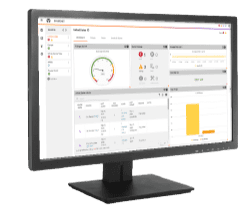
Racks & Enclosures: Vertiv VR Rack
Standardize your deployments around the world and bring them online faster with the
Vertiv™ VR rack. The Vertiv VR supports a wide variety of equipment, including: servers, storage, switches, routers, PDUs, UPSs, console port servers and KVM switches.
PRODUCT HIGHLIGHT: VERTIV VR rack
Type: Rack Enclosures
Doors: 77% Perforated
Rails: 19” Integrated Alignment
Panels: Split-Locking Security
Cables: High density cable entry top cover (2000+ Cat 6 cables)
Height: 42U, 54U, and 48U frames with 2.5” more usable depth
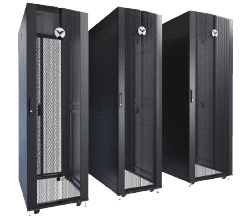
Rack Power Distribution: Vertiv Geist C13/C19 Outlet
Reduce the complexity of IT power infrastructure deployments with the Vertiv™ Geist™ Combination C13 / C19 Outlet. The Combination Outlet C13 / C19 is a 2-in-1 receptacle functioning as both an IEC C13 and C19.
PRODUCT HIGHLIGHT: VERTIV GEIST c13/c19 outlet
Type: Combination Power Outlet
Retention: High; P-Lock Compatible
Outlets: All C13/C19; Connect C14, C20
Circuits: Customizable, Color-coded P-Lock Tabs
Compliance: UL Certified and CE Marked
Compatibility: All products now and in the future
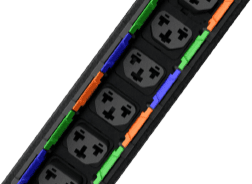
UPS: Vertiv Liebert GXT5
The Vertiv™ Liebert® GXT5 UPS is an online double conversion UPS solution in a
compact and flexible rack/tower design. This single-phase UPS family provides superior protection and remote management capability.
PRODUCT HIGHLIGHT: VERTIV LIEBERT GXT5
Type: UPS
Power: 0.9-1.0 PF
Voltage: 500-3000VA 120V and 208/120V models
Efficiency: Up to 98% ECO mode
Interface: Color LCD; Gravity Sensitive
Battery: Auto-detecting External Cabinets

Expertly Managed Professional Services
A complete life-cycle approach to service, from project launch to ongoing maintenance and performance optimization. We strive to keep your network infrastructure highly available, efficient, and adaptable, so you can:
- Increase mean time between failure
- Decrease operating cost
- Implement future technologies while
maximizing your resources
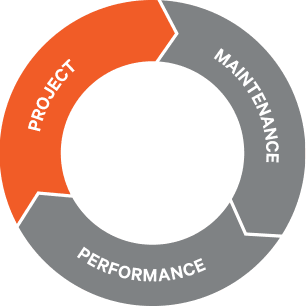
Project
When launching new facilities or powering up new equipment, you want to do it right.
- Plan
- Design
- Engineer
- Commission
- Project Manage
Maintenance
Services to ensure that your infrastructure operates reliably, safely, and efficiently.
- Preventive and corrective maintenance
- Remote services and monitoring
- cap/fan/battery replacements
- Repair & spare parts
Project
Full range of services designed to optimize performance and reduce complexity.
- Assessment
- Model
- Configure
- Upgrade
- Train
Need Help Launching Your Edge Site?
Contact your local Vertiv office to begin a discussion on determining the best Edge solutions for your IT Infrastructure needs. Contact us today.

